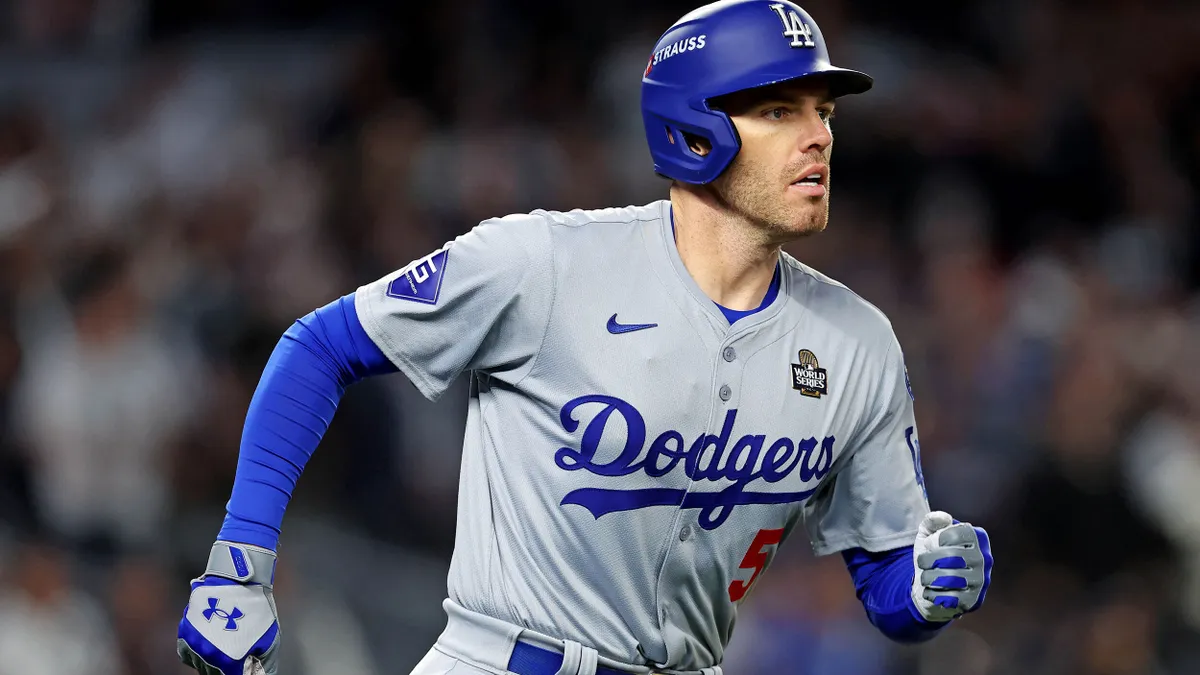Rare diseases aren’t typically a part of baseball’s news cycle. But late last summer, Los Angeles Dodgers first baseman Freddie Freeman had to step away from the game for several weeks when his son became ill with Guillain-Barré syndrome, a rare, potentially life-threatening neurological disorder. The swell of support for Freeman, who went on to become the 2024 World Series MVP, suddenly raised the profile of the disease.
In GBS, the immune system mistakenly attacks part of the peripheral nervous system. Symptoms come on suddenly and progress rapidly, starting with tingling and weakness and sometimes leading to paralysis.
“It starts in your feet and moves up through your body,” said Douglas Love, president and CEO of Annexon Biosciences, which has a late-stage GBS candidate in the pipeline. “One in four patients are going to be on a ventilator within a couple of weeks.”

That common trajectory was the same for Freeman’s three-year-old son, Maximus. Within a matter of days, he developed a limp, couldn’t sit up and eventually couldn’t breathe on his own.
Although the “why” behind GBS is unknown, it strikes days or weeks after another illness, such as a respiratory or gastrointestinal bacterial or viral infection, has cleared.
“There’s no disease that I'm familiar with that’s like Guillain-Barré syndrome. It happens in patients who are otherwise completely healthy,” said Love. GBS impacts 3,000-6,000 people in the U.S. each year, according to the CDC, and is often treated with off-label intravenous immunoglobulin therapy.
“It has some effect, depending upon how severe the disease is. But the more severe the disease, the less effective IVIG is,” Love said.
However, there’s no FDA-approved treatment for the disease, and while most patients recover, the process can be long and brutal.
“It's a neurological nightmare for patients that deserves an appropriate therapy."

Douglas Love
CEO, Annexon Biosciences
Annexon Biosciences wants to change that. The company successfully completed a pivotal phase 3 trial for its lead candidate, ANX005, an immunotherapy that targets and blocks C1q, the molecule that initiates the classical complement pathway associated with GBS. ANX005 received FDA fast track and orphan drug designations.
“We're pursuing what is a unique or diverse approach from other complement programs in that we're targeting upstream complement activity,” Love said. “It localizes and activates complement or inflammation right on disease tissue, so you can be more proximal in your approach in targeting aberrant inflammation.”
A June phase 3 readout showed ANX005 had statistically significant results on key endpoints, including on the GBS disability scale.
Unlike IVIG, which is administered over five days, ANX005 is given by IV infusion within a few hours and works that quickly, too, Love said.
“Our drug is quite simple. It is designed to block C1q immediately upon administration,” he said. “It speaks to the power of our approach, which is quickly shutting down C1q, shutting down the disease process, and allowing patients to move from a state of decline to stopping the disease process.”
Love said the company plans to file its biologics license application for ANX005 in the first half of 2025.
Although the GBS market is small, Annexon will have it cornered as the first and only approved treatment if it wins an FDA OK. In addition, Love said there’s a 90% compliance rate in treating GBS, and 80% of the disease’s incidence occurs in five large states and in “just a few hundred hospitals.”
“Although [GBS] happens acutely and sporadically, it happens where you have more people,” he said. “That allows us to have a very efficient commercial footprint.”
ANX005 isn’t the only product in Annexon’s pipeline targeting C1q. Its other flagship programs are in geographic atrophy and complement-mediated autoimmune diseases, as well as programs in Huntington’s disease, ALS and lupus nephritis.
“We're the first, and thus far, the only company targeting C1q in the clinic,” Love said. “By targeting C1q where it initiates this inflammatory disease process, it allows us to pursue a wide swath of indications that you don't necessarily always see with complement programs.”
First up, though, is a chance to change the trajectory of GBS.
“It's a neurological nightmare for patients that deserves an appropriate therapy,” Love said.











